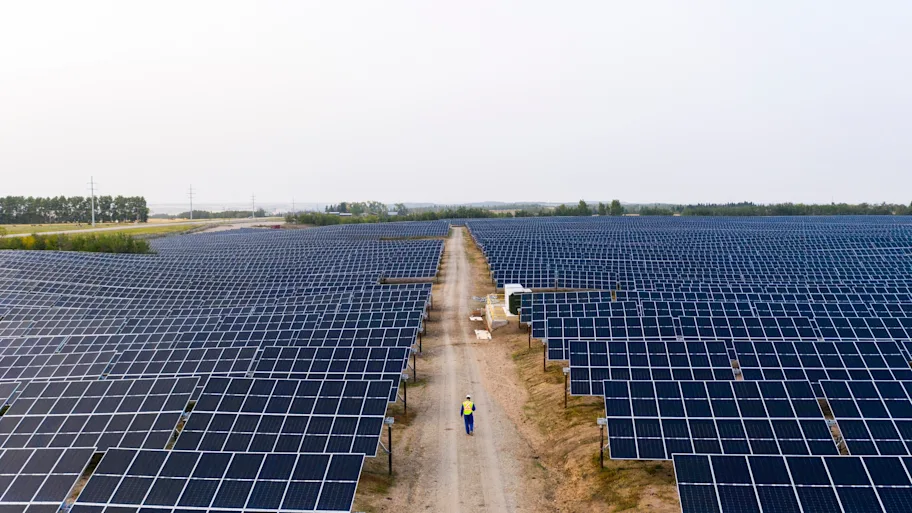
- Science news
- Featured news
- How does a shrinking population weaken us in tackling the climate crisis? Here are five Frontiers articles you won’t want to miss on World Population Day
How does a shrinking population weaken us in tackling the climate crisis? Here are five Frontiers articles you won’t want to miss on World Population Day

July 11th marks World Population Day, when organizations and groups raise awareness about a variety of population issues. This year, the focus lies on climate change, resource scarcity, and shifting demographics.
We’re highlighting five recently published Frontiers articles that examine the effects of shrinking populations, movement of people, and health of some demographic groups on a warming planet.
Labor shortages could delay countermeasures mitigating climate change effects
Croatia is warming faster than the global average and ranks among the least climate-resilient high-income countries worldwide. Writing in Frontiers in Sociology, a scientist in Croatia conducted analyses to identify economic sectors in the country that could aid climate-resilient development based on their potential to reduce emissions.
The findings showed that sectors that have high potential to mitigate rising emissions include tourism, construction, and healthcare – all of which suffer from significant labor shortages. This demographic decline could undermine the country’s capacity to implement climate measures or delay counter-efforts. To ease these labor shortages, there is an increasing reliance on migrant labor as Croatia’s own workforce has been declining steadily and innovation put is relatively low.
These results suggest that a shrinking workforce is a key obstacle for implementation of measures aiming to slow down climate change, the author wrote, highlighting that easing socio-economic constraints is vital to ensure the success of climate-resilient development.
Article link: https://www.frontiersin.org/journals/sociology/articles/10.3389/fsoc.2025.1564299/full
How does displacement worsen gender inequalities and shape access to food resources?
There are more than 120 million people affected by displacement resulting from armed conflict, violation of human rights, as well as natural or human-made disasters. While all displaced persons find themselves in precarious positions, women are affected disproportionally.
In a recently published Frontiers in Sustainable Food Systems article, researchers in South Africa and Zimbabwe have examined how displacement in Mozambique exacerbates inequalities experienced by women, the impacts it has on women’s access to food resources, and how it impacts their livelihoods.
They found that in displacement contexts, women are particularly affected by inequalities in labor linked to food production, incidences of gender-based violence, and high degrees of food insecurity. Despite their active involvement in food systems in displacement settlements, persistent socio-cultural and structural factors, such as informal labor, significantly impede women’s ability to translate their labor into profit and build resilience. These factors also prevent them from accessing social protection mechanisms like childcare and reproductive health support, the authors wrote.
Article link: https://www.frontiersin.org/journals/sustainable-food-systems/articles/10.3389/fsufs.2025.1564638/full
People living in urbanized areas without uprooting their homes could become healthier
When people start living in more urbanized areas without moving there, it is known as in-situ urbanization. The term describes the transformation of rural into urban regions with no or hardly any migration of people into or out of the region.
Researchers in China have now examined how in-situ urbanization impacts the health of people living in newly urbanized areas. They published their results in Frontiers in Public Health.
They found that in-situ urbanization had positive effects on individual health, with women and people aged under 60 experiencing greater health improvements than men and older people, respectively. The researchers identified higher incomes as the underlying mechanism: With household incomes rising on average by almost 20% and businesses making more money, in-situ urbanization improves individual health, they wrote.
Article link: https://www.frontiersin.org/journals/public-health/articles/10.3389/fpubh.2025.1588944/full
Prioritizing women’s health could ensure healthy births on a warming planet
Effects of the climate crisis – water scarcity, malnutrition, exposure to environmental pollution, and extreme weather events – cause a significant threat to human health. Pregnant people, who already face increased physiological demands, are even more vulnerable to such stressors.
Now, Frontiers in Global Women’s Health authors conducted a literature review spanning 24 years to examine challenges for pregnant people caused by the climate crisis that directly or indirectly affect maternal and fetal health and outlined some mitigation strategies.
Highlighting the dangers of climate change induced risks to women, they called for a women-centered approach to health care. To address pregnant women’s needs, inclusive and personalized healthcare is key and should be prioritized across women’s lifespans, the team wrote. On a policy level, sexual and reproductive health and human rights should be integrated into climate policies to enhance the well-being and health of women globally.
Article link: http://frontiersin.org/journals/global-womens-health/articles/10.3389/fgwh.2025.1483938/full
Bad air could make people want to move
It has long been established that air pollution has negative effects on our health, and that older people are particularly vulnerable when exposed to bad air. But how does living in a region with polluted air inform decisions to move?
Researchers in China recently published a Frontiers in Public Health article in which they analyzed mechanisms through which air pollution impacts relocation decisions.
Older people’s decision to move is influenced by a variety of factors, with air quality dissatisfaction, a push factor that predicts relocation willingness in heavily polluted cities, among them. The results showed that both urban characteristics and individual attributes factored into older adults’ health risk perceptions, which informed relocation considerations. Measures and interventions such as subsidized relocation programs and health literacy measures are needed to protect older adults, the authors concluded.
Article link: https://www.frontiersin.org/journals/public-health/articles/10.3389/fpubh.2025.1589168/full







